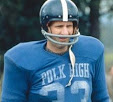 |
| [ PHOTO: ESPN ] |
July 14, 2017
Peter Solari, Contributing Editor Follow @4PeteSakeNY
On Thursday, as part of its 30-for-30 franchise (which is quite excellent), ESPN Films premiered the documentary "Mike and the Mad Dog," chronicling the wild 20-year ride of Mike Francesa and Christopher "Mad Dog" Russo in the afternoon drive on New York's iconic sports radio station, WFAN, aka "The Fan." Check out the trailer below.
For anyone who didn't grow up in or around New York, this most likely wasn't a big deal. However, for sports fans in the Big Apple, and others around the world, it was. For two decades, Francesa and Russo were the biggest things in New York sports, as Emmy winner Daniel H. Forer's film so aptly exhibits. But even in the sports-crazed city of New York, Francesa and Russo's story represents something so much bigger.
Nowadays, 24-hour sports-talk is a staple in just about every radio market in the country; certainly the large ones, but it wasn't always like that. In fact, until WFAN came around in 1987, 24-hour sports-talk wasn't a thing. And until the two Long Islanders, Francesa and Russo, reluctantly teamed up in 1989, it wasn't very successful either. After a bumpy start, "Mike and the Mad Dog" became one of the most successful duos in radio history, and along the way, they blazed a trail for countless others.
I was first exposed to "Mike and the Mad Dog" at an early age through my Uncle Michael, a rabid sports fan who always had his radios (both at home and in the car) tuned to "The Fan" for as long as I can remember. I was only four years old when WFAN first signed on the air, and only six when "Mike and the Mad Dog" first teamed up. Because of this, 24-hour sports-talk was always a part of my life, but I didn't realize how rare that was until years later. Through all my years of listening to sports-talk, nobody has played a bigger role than Francesca and Russo, but unbeknownst to me through most of that time, I had a front row seat to the dawn of a whole new day in radio.
Ultimately, it was an ex-Mike and the Mad Dog Caller, turned WFAN broadcaster, Joe Benigno, who made me fall in love with radio, and more specifically, sports-talk. But in those days, Benigno was on during the overnight, and it wasn't convenient for a kid who had to go to school, to be listening to the radio from 1-5:30 in the morning. Francesa and Russo, however, were the top dogs at "The Fan," and were on in the early afternoon to the early evening. It was always fun to tune in right at 1:05 PM to hear Russo, with a voice described in the film as, "Donald Duck on steroids," deliver his trademark intro: "Aaaaaaaaaaaaaaand, good afternoon everybody! How are you today?"
"Mike and the Mad Dog" were to New York in the 90s, what Howard Stern was to Washington DC in the 80s. We were all hooked on Mike and Chris every afternoon from 1-6. Sometimes we agreed with them. Often times, we were chiding them through our radios. It was definitely a "love-hate" thing, but New York sports fans just couldn't walk away. And while Stern's title as the original "shock jock" has been disputed, there's no question that Francesa and Russo are pioneers of sports-talk radio. And, as Forer's documentary conveys, it wasn't just people in New York who were noticing.
Within five years of "Mike and the Mad Dog's" debut, full-time sports-radio exploded in America, expanding from just four total stations in 1990, to 130 in 1995. According to former Infinity Broadcasting CEO Mel Karmazin, people were coming to New York from all over the country to replicate the successful model of "Mike and the Mad Dog," and Francesa and Russo "clones" began popping up all over the place. Even now, longtime ESPN broadcaster Mike Greenberg says he "can hear Mike and Chris in a lot of sports-talk show hosts." All of this has evolved into the sports radio industry as we know it today, where according to Wikipedia, there are nearly 500 sports-talk stations nationally. So every sports radio broadcaster, producer, engineer, soundboard operator, editor, intern, and listener owes a tip of the cap to "Mike and the Mad Dog."
One of the underlying themes of the "Mike and the Mad Dog" tale is the duo's often contentious relationship. Francesa and Russo were two very different personalities whose partnership is described as an "arranged marriage." The two didn't like each other at first, and both of them did their best to get out of the forced union. But time heals all wounds, and "Mike and the Mad Dog" were no exceptions, eventually growing extremely close. However, like all long-term relationships, there were squabbles along the way, sometimes intense ones.
There was a months long period of time when Francesa and Russo didn't speak at all off the air, not even during commercial breaks. Their childish feuds off the air, never stopped the pair from putting on a quality show, but even their professionalism wasn't enough to hide their heated relationship. It was front-page news in New York. That was the nature of Francesa and Russo's star-power. But in Forer's "Mike and the Mad Dog" documentary, even a longtime listener like myself, was able to gain a new perspective.
Francesa has a large ego. Nobody, not even Francesa himself, would argue that. Because of this, he's gotten a reputation for being somewhat of a jerk, over the years, but that's not how he was portrayed in this film. Francesa came across as a really good guy, compared to the villain, Russo. This was evident in 2008, when Russo left "Mike and the Mad Dog" for a solo gig and his own channel on SiriusXM, ending a 19-year run at "The Fan." The following day, angry WFAN management instructed Francesa not to let Russo come on the air, but Francesa wasn't having any of that, opting instead to afford "Mad Dog" the opportunity to properly say goodbye to the show that launched his career. Francesa's love and appreciation not only for the "Mike and the Mad Dog" program, but his nearly two-decades long partnership with Russo, was on full display on that day.
Russo, on the other hand, came across as a ruthless weasel during this time by denying rumors of his impending move to satellite radio, even keeping Francesa in the dark until the deal was finalized. A year prior to this, Russo, again behind his partner's back, lobbied WFAN management to give him the morning show after Don Imus was fired for controversial comments about the Rutgers University women's basketball team.
These tactics, and other instances, such as cutting Francesa's name out of the show's jingle when he was on vaction, and failing to invite Francesa to his numerous appearances on "The Late Show with David Letterman," left a rather unflattering of Russo. In fact, it was "Mad Dog," not Mike, who came across as the real egomaniac and, at times, the jerk, too. That is the polar opposite of what I was expecting before seeing this documentary, and it goes against everything I thought I knew about "Mike and the Mad Dog."
The "Mike and the Mad Dog" show was like a 19-year roller coaster ride. It was a little uneasy at times, but always exciting, always fun, and always leaving us wanting more. Daniel Forer does a magnificent job of capturing all these emotions in his film. At its heart, though, "Mike and the Mad Dog" is the story of two trailblazers who paved the way for an industry that has exploded in popularity across this country. It's a one-hour lesson on the history of sports-talk radio, and a must watch for fans of this genre everywhere.
















